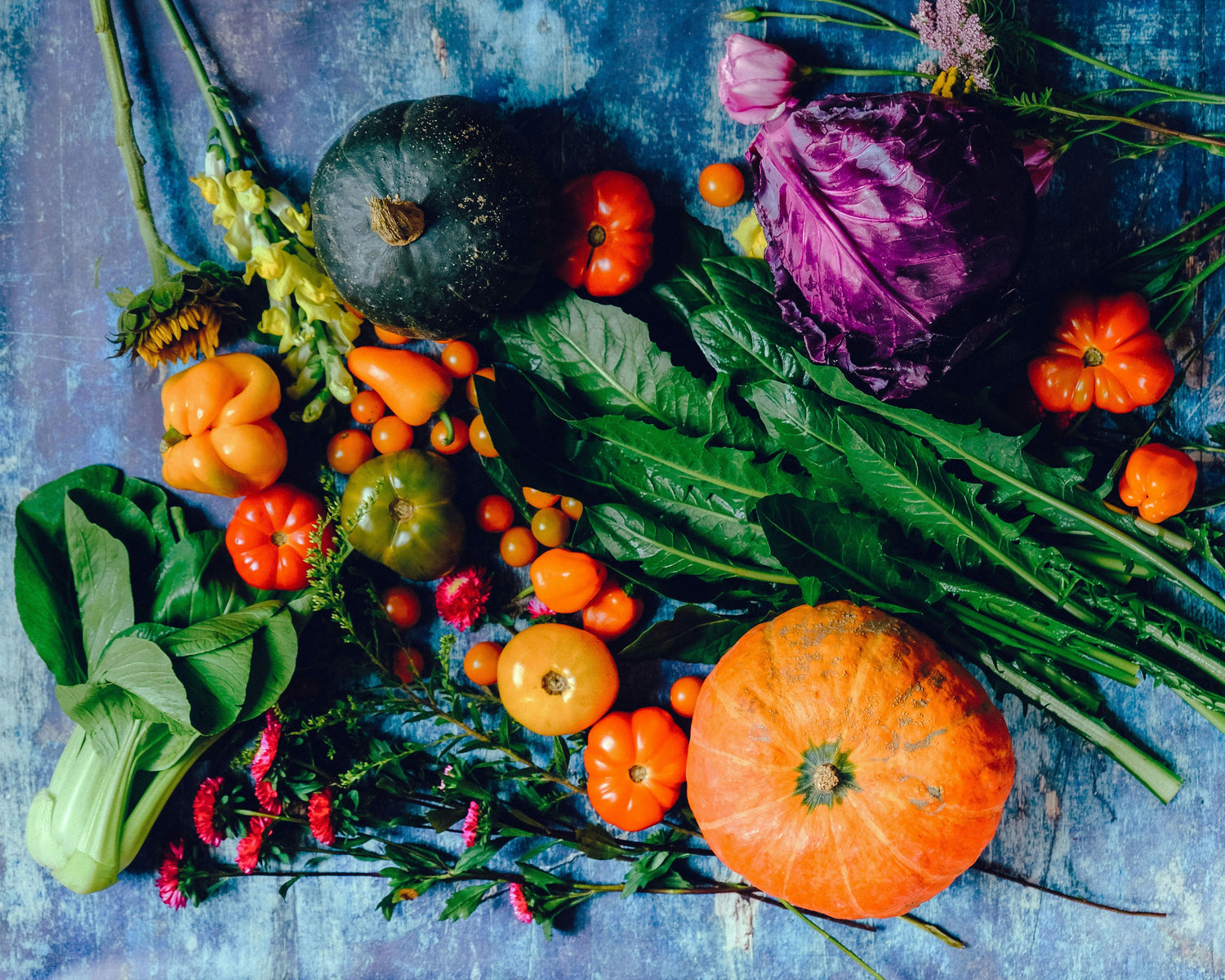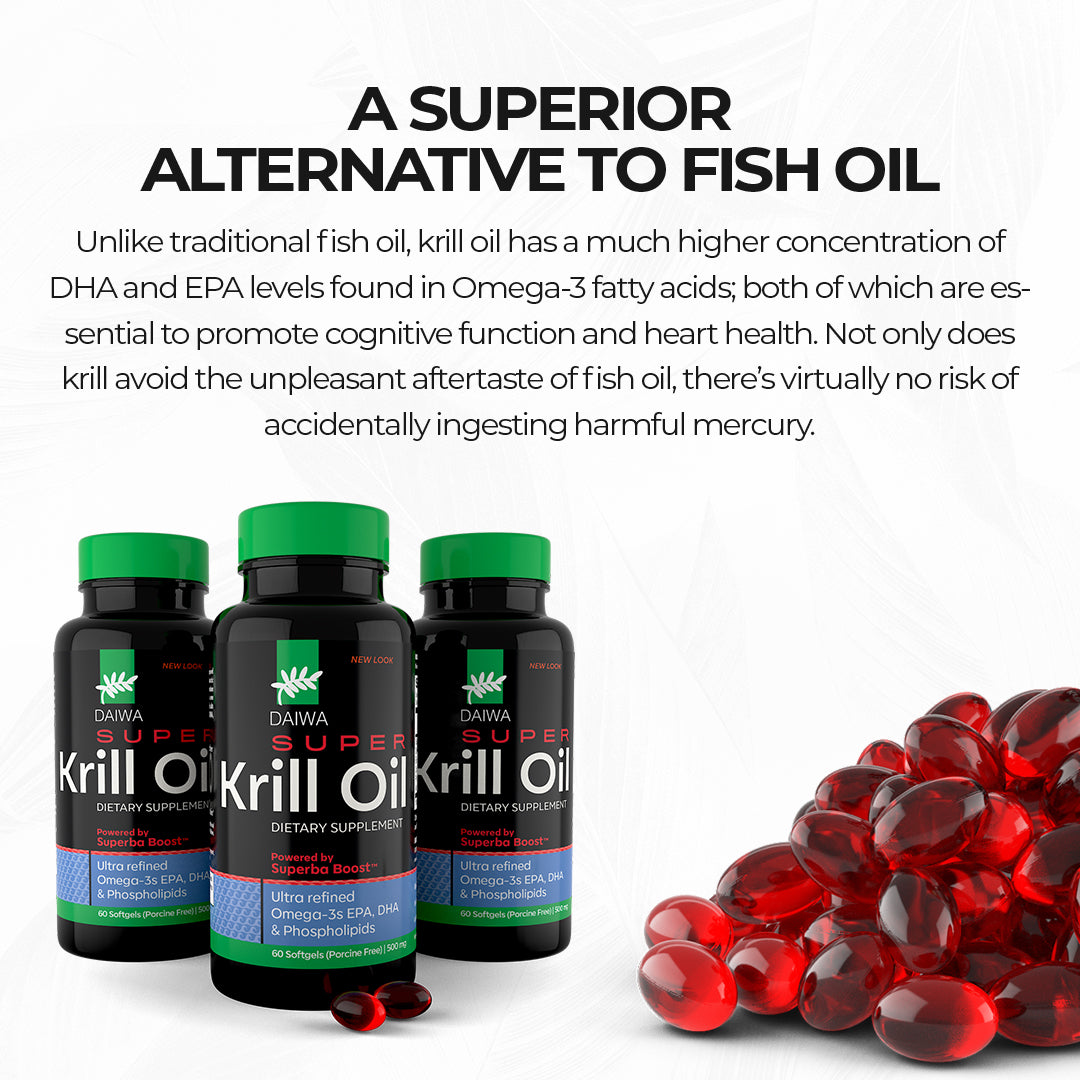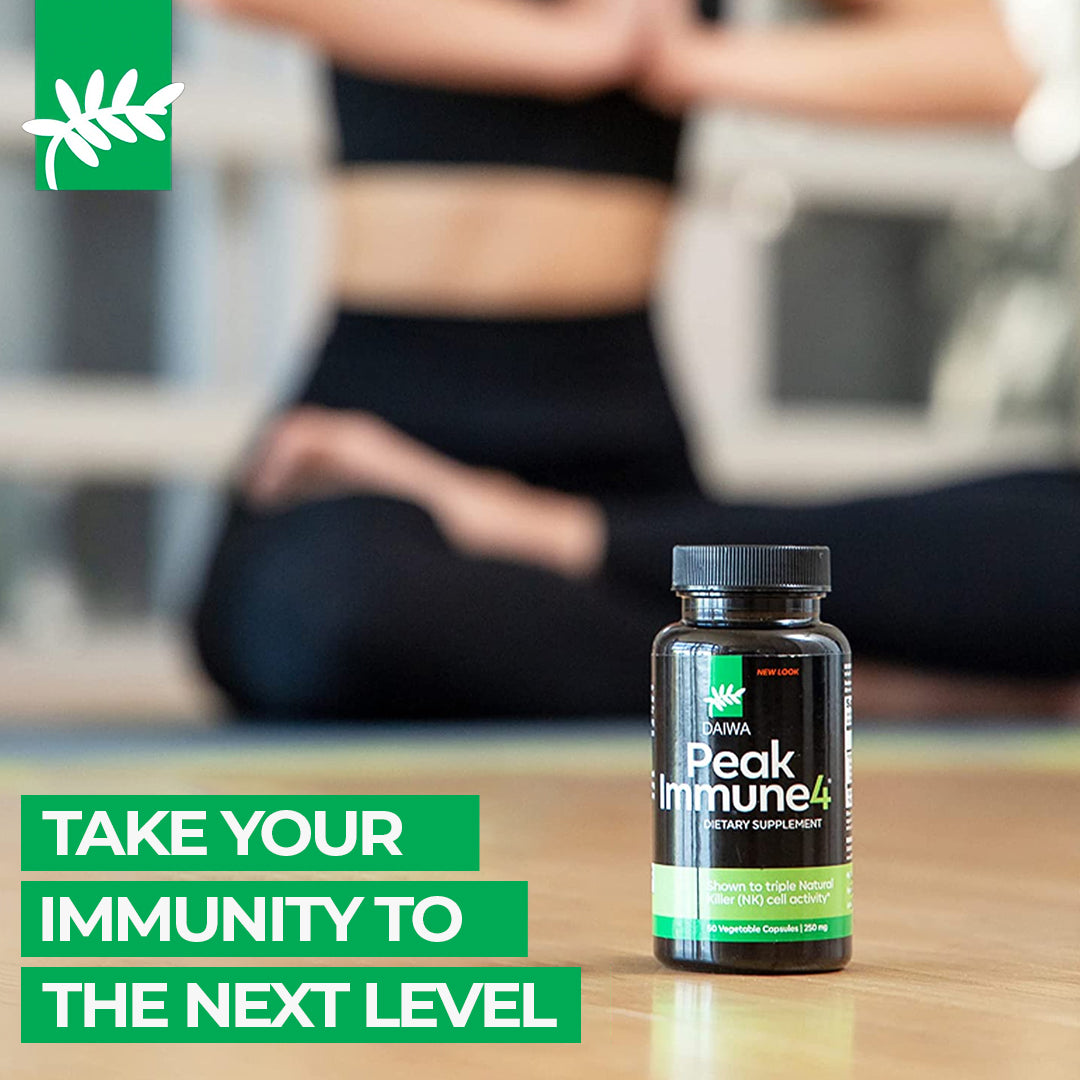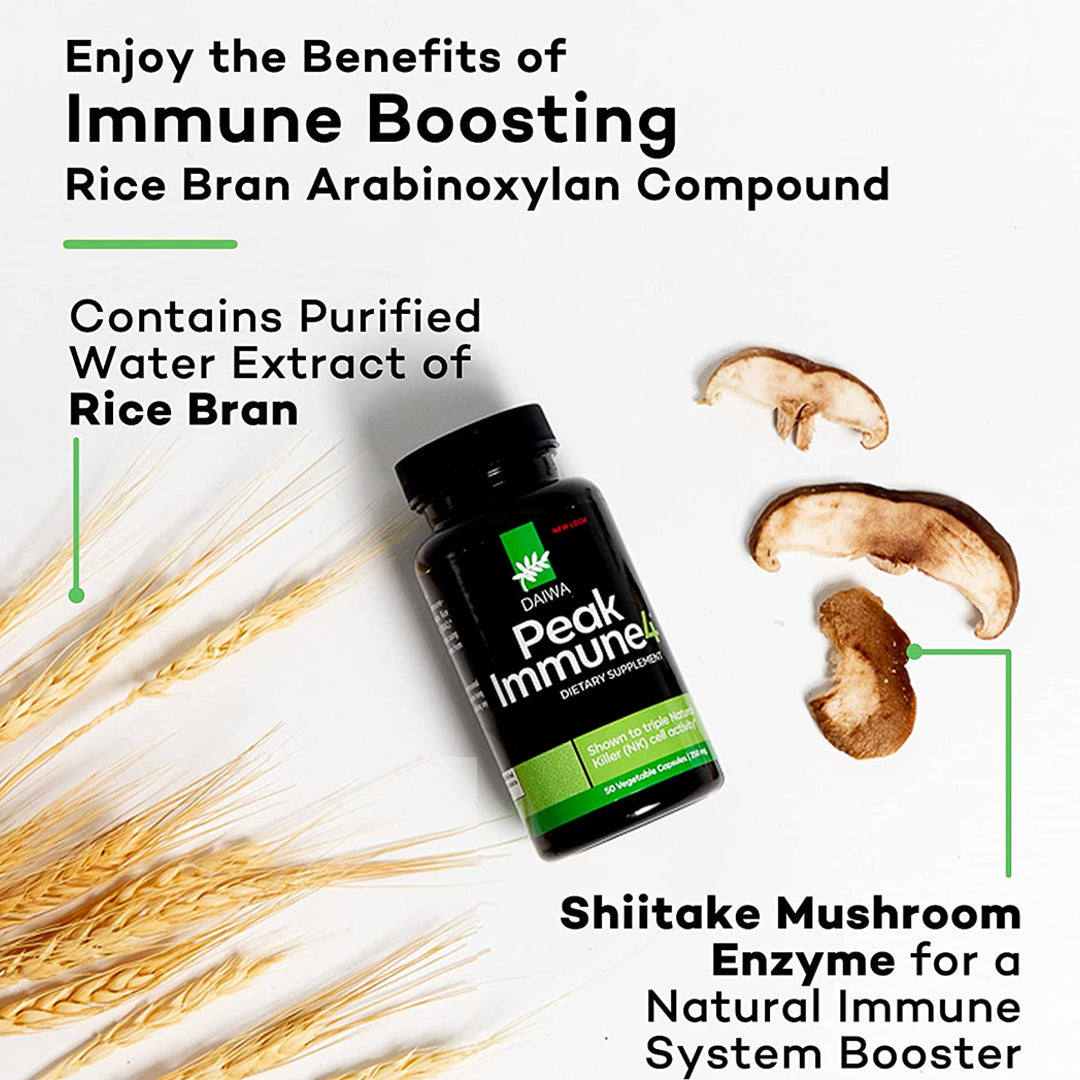At Daiwa Health Development, we believe great health begins in the gut. It’s the body’s command center for digestion, immunity, and even mood. In recent years, the spotlight has turned to prebiotics and probiotics—a powerful combination that helps the gut microbiome thrive. While probiotics are well-known, prebiotics are the often-overlooked partner that makes the system work. Prebiotics and probiotics interact within our bodies to support gut health and overall well-being.
Understanding prebiotics gut health is essential to supporting a stronger digestive system, a balanced mind, and a healthier life. Let’s break down what prebiotics are, why they matter, and how the right foods and supplements can help you achieve lasting wellness.
What Are Prebiotics?
Prebiotics are types of fiber—mainly complex carbohydrates—that your body can’t digest. Instead, they feed the good bacteria in your intestines. Think of them as nourishment for the gut microbiota, the community of trillions of microorganisms living inside you.
When prebiotics reach the large intestine, they’re fermented by gut bacteria, producing short chain fatty acids (SCFAs) such as acetate, butyrate, and propionate. These SCFAs help maintain a healthy gut barrier, regulate inflammation, and provide energy to the cells that line the GI tract. The production of SCFAs has a beneficial effect on gut health and overall well-being by supporting digestive function and managing inflammation.
Without prebiotics, even the best probiotic supplements can struggle to survive. That’s why pairing prebiotics and probiotics together is one of the most effective ways to promote digestive health and overall wellness.
How Prebiotics Support Gut Health
A healthy gut ecosystem depends on diversity—different bacteria, microorganisms, and nutrients working together. Diets rich in prebiotics and fermented foods can positively influence gut health and microbiome composition by promoting the growth of beneficial bacteria. Prebiotics fuel this balance by supporting healthy bacteria that, in turn, improve nutrient absorption, immune regulation, and mood stability.
Feeding the Right Gut Microbes
When you eat prebiotic foods, you’re encouraging the growth of beneficial bacteria like Bifidobacteria and Lactobacilli. These microbes play a crucial role in digestion, mineral absorption, and the production of vitamins like B and K.
Strengthening the Gut Lining
Short chain fatty acids produced during fermentation strengthen the intestinal wall, reducing permeability that contributes to inflammation. A stronger gut barrier supports a more healthy gut, lowering the risk of inflammatory bowel disease, irritable bowel syndrome, and even ulcerative colitis.
Balancing the Immune System
Nearly 70% of your immune system lives in the gut. By encouraging the growth of good bacteria, prebiotics help regulate immune responses and keep pathogens in check. resulting in better resilience overall.
The Role of Prebiotics in Integrative Health
Prebiotics are a cornerstone of integrative health, offering benefits that extend well beyond the digestive tract. By nourishing beneficial gut bacteria, prebiotics help create a healthy gut microbiome—a foundation for overall well-being. These non-digestible fibers act as fuel for good bacteria, which in turn produce short chain fatty acids. These compounds are known for their powerful health benefits, such as supporting immune system function, reducing inflammation, and helping to maintain a healthy weight.
A diet rich in prebiotic foods can help balance the gut environment, making it more resilient against stressors and less prone to chronic conditions like inflammatory bowel disease and metabolic disorders. Integrative health approaches recognize that a healthy gut is central to the health of the entire body. By including a variety of prebiotic fibers in your daily food choices, you can support digestive health, enhance immune resilience, and promote long-term wellness.
Mineral Absorption and Prebiotics
One of the lesser-known benefits of prebiotics is their ability to boost mineral absorption, particularly calcium, in the gut. When prebiotics are fermented by gut bacteria, they produce short chain fatty acids that increase the solubility of minerals, making them easier for the body to absorb. This procedure is especially important for healthy adults looking to maintain strong bones and to prevent conditions like osteoporosis.
Research has shown that prebiotic supplementation can significantly improve calcium absorption, even in individuals who have difficulty absorbing this essential mineral. Beyond calcium, prebiotics may also enhance the uptake of other key nutrients such as magnesium and iron, further supporting overall health. Including prebiotic-rich foods in your diet is a simple yet effective way to maximize the benefits of prebiotics for mineral absorption and support the body’s nutritional needs.
The Difference Between Prebiotics and Probiotics
Though they work hand in hand, prebiotics and probiotics have distinct roles.
- Probiotics are live microorganisms found in fermented foods and supplements. They introduce beneficial species directly into your gut.
- Prebiotics, on the other hand, are the food that helps those microorganisms grow and flourish.
Together, probiotics and prebiotics form a synergistic relationship known as synbiotics—working as a team to create optimal digestive health and balance.
Pro Tip: If you’re already taking a probiotic supplement, pairing it with a prebiotic supplement can dramatically increase its effectiveness.
It's important to note that health claims about probiotics are regulated and must be supported by strong evidence. For reliable, evidence-based information on probiotics, consult a healthcare professional.
Prebiotic Foods to Add to Your Diet
There’s no single “best” prebiotic, but certain foods are naturally rich in these fibers. Adding a variety of prebiotic foods to your diet helps support microbial diversity and consistent energy production in the gut. Including prebiotic-rich foods in your daily diet provides a significant health benefit by supporting gut health and overall well-being.
Top Sources of Prebiotics
- Jerusalem artichokes – One of the richest sources of inulin, a prebiotic fiber that feeds gut microorganisms.
- Garlic, onions, and leeks – Contain fructooligosaccharides (FOS), which support healthy bacteria growth.
- Bananas – Especially slightly green ones; they contain resistant starch that nourishes good bacteria.
- Asparagus and chicory root – Powerful sources of inulin for gut and immune system support.
- Whole grains – Oats, barley, and brown rice are high fiber foods that feed gut microbiota while aiding appetite control and healthy weight management.
- Legumes – Beans and lentils contain complex carbohydrates that feed beneficial microbes and improve blood sugar stability.
Guar Gum as a Prebiotic Source
Guar gum is a versatile prebiotic fiber derived from the guar bean, and it offers unique health benefits for the gut. Unlike some fibers, guar gum is not fully digested in the small intestine. Instead, it travels to the large intestine, where it is fermented by beneficial bacteria. This process results in the production of short chain fatty acids, which are known to support digestive health and to encourage the growth of healthy gut bacteria.
In addition to its positive effects on the gut, guar gum has been shown to help regulate blood sugar levels and may promote healthy cholesterol. You can find guar gum in a variety of foods, including baked goods, dairy products, and as an ingredient in certain fiber supplements. By incorporating guar gum into your diet, you can enjoy its beneficial effects on both digestive health and overall wellness.
Complementary Fermented Foods
Combining prebiotic and probiotic foods gives your gut the full spectrum of nourishment. Include:
- Yogurt and kefir (rich in live microorganisms)
- Sauerkraut and kimchi (natural fermented foods)
- Tempeh and miso (soy-based probiotic foods)
This pairing amplifies the health benefits of both and ensures your gut bacteria stay balanced and active.
Signs You Might Need More Prebiotics
The body sends signals when the gut ecosystem is off-balance. Common symptoms include:
- Irregular bowel movements or bloating
- Increased cravings for sugar or processed foods
- Fatigue or mood swings linked to gut imbalance
- Worsening of irritable bowel syndrome symptoms
- Poor skin health or unexplained inflammation
If you recognize these signs, your diet may be low in prebiotic foods or fiber. Incorporating a prebiotic supplement can be an easy, effective step toward restoring balance.
Prebiotics, the Gut Microbiome, and Mental Health
Emerging research continues to connect gut balance with mental health. The gut microbiome communicates with the brain through neural, hormonal, and immune pathways. Studies suggest that prebiotics and probiotics may reduce symptoms of anxiety and depression by improving microbial composition and short chain fatty acid production.
This growing field of complementary and integrative health shows that nurturing your gut isn’t just about digestion—it’s about supporting the mind as well.
Are Prebiotics Safe for Children?
Yes. In fact, human studies suggest that prebiotics and probiotics play an important role in childhood development by supporting immunity and reducing gastrointestinal issues.
Prebiotics occur naturally in breast milk as oligosaccharides, feeding healthy bacteria in the infant’s small intestine. For children, introducing certain foods like bananas, oats, and yogurt encourages a gut healthy microbiome early in life.
Still, it’s always best to discuss any dietary supplements with a qualified healthcare professional before introducing them to children.
Are There Any Downsides to Taking Prebiotics?
Most people tolerate prebiotics well, especially when introduced gradually. However, adding too much fiber too quickly can cause mild bloating or gas as the gut bacteria adjust.
This reaction is not harmful—it’s a sign the gut microorganisms are becoming more active. To ease the transition, start with smaller servings of prebiotic foods and increase intake slowly.
Those with Crohn’s disease, ulcerative colitis, or inflammatory bowel disease should seek guidance from a healthcare provider before beginning supplementation.
Prebiotics and Chronic Disease Prevention
Emerging research highlights the important role prebiotics play in promoting gut health. By supporting the growth of beneficial bacteria in the gut, prebiotics help increase the production of short chain fatty acids, which have inflammation management properties. SCFAs can manage inflammatory bowel disease and other chronic gut disorders.
Prebiotics also contribute to a healthy gut microbiome, which is linked to a reduced risk of metabolic issues. They help regulate appetite and improve glucose metabolism, supporting a healthy weight and balanced blood sugar levels. Furthermore, a robust gut environment may help protect against a compromised immune system by maintaining healthy cell turnover and managing inflammation. Prioritizing prebiotics in your diet is a proactive step toward long-term health.
The Benefits of Prebiotics Go Beyond Digestion
The benefits of prebiotics reach far beyond the digestive system. Regular consumption supports:
- Better calcium absorption for stronger bones
- Improved blood sugar control and metabolic balance
- Enhanced immune system response
- Better energy regulation through short chain fatty acids
By supporting gut health, prebiotics contribute to many health benefits throughout the entire body.
What Is the Best Prebiotic for the Gut?
There isn’t one universal best—it depends on your diet, lifestyle, and health goals. The ideal prebiotic supplement or food plan includes a blend of inulin, FOS, and resistant starch. These fibers have proven potential health benefits across digestion, immunity, and metabolism.
At Daiwa Health Development, we emphasize natural sources and whole foods first, supported by science-backed supplements when needed. Our products are designed to help you achieve a healthy gut, balanced immune system, and vibrant energy.
How Prebiotics Work With Probiotics and Supplements
Combining probiotic supplements with prebiotics creates an environment where live microorganisms thrive. This synergy enhances gut diversity, supports nutrient production, and strengthens the digestive system.
Prebiotics provide consistent fuel, while probiotics introduce beneficial species. Together, they maintain long-term balance—protecting against metabolic syndrome, improving digestion, and supporting emotional well-being.
At Daiwa Health Development, our formulations pair advanced prebiotic fibers with high-quality probiotics to encourage real, lasting improvements in gut health and immunity.
A Balanced Diet Is Still the Foundation
While supplements play a role, the foundation of gut wellness lies in daily food choices. Prioritize:
- Vegetables and fruits for their fiber and antioxidants
- Whole grains for complex carbohydrates and steady energy
- Dairy products like yogurt or kefir for probiotic foods
- Hydration, stress management, and quality sleep
When these lifestyle habits align, your gut microbiome functions as nature intended—diverse, resilient, and deeply connected to the rest of your body.
The Science Behind Prebiotics and Gut Health
Modern food science continues to uncover how prebiotics and probiotics affect long-term health. Research links a well-fed microbiome to stronger immunity, improved mineral absorption, and enhanced resistance to symptoms of gut microbiome abnormalities.
Studies also show how prebiotics influence toll like receptor activity in the gut, fine-tuning immune responses and managing inflammation. This research confirms the simple act of eating prebiotic foods could have profound effects on everything from digestion to mental clarity.
Daiwa Health Development: Supporting Gut Health Naturally
At Daiwa Health Development, our mission is to help people take control of their health through natural science. We understand that maintaining a balanced gut takes more than a single product—it takes knowledge, consistent habits, and support from quality supplements.
Our prebiotic and probiotic formulations are built on clinical research and tested for effectiveness. Each product supports the body’s natural ecosystem, helping restore balance from the inside out.
Whether you’re managing IBS, seeking better nutrient absorption, or simply aiming for improved digestive health, our solutions are designed to help you thrive.
Conclusion: Feed Your Gut, Fuel Your Life
Your gut is more than just a digestive system—it’s an intelligent network that connects nutrition, emotion, and immunity. By focusing on prebiotics and probiotics, you strengthen your foundation for lasting health.
A diet rich in prebiotic foods, fermented foods, and balanced whole grains, combined with quality probiotic supplements, creates a resilient and diverse gut microbiome.
When your gut health flourishes, everything else follows—energy, focus, metabolism, and mood.
At Daiwa Health Development, we’re proud to support this journey with products that reflect our commitment to science, integrity, and human wellness. Because when you feed your gut, you truly fuel your life.
Conclusion and Future Research
In summary, prebiotics are essential for cultivating a healthy gut microbiome and unlocking a wide range of health benefits. From supporting digestive health and mineral absorption to managing healthy gut microbiome, the benefits of prebiotics are both immediate and far-reaching. As research continues to uncover new connections between gut bacteria, diet, and overall health, the importance of prebiotics in maintaining a healthy gut becomes even clearer.
Future studies will help clarify the optimal types and amounts of prebiotics for different individuals, as well as how prebiotics interact with other nutrients in the diet. As our understanding of the gut microbiome grows, so too will the strategies for using prebiotics to promote a healthy gut. By choosing prebiotic-rich foods and considering supplementation when needed, you can take an active role in supporting your gut health and overall well-being. Stay tuned to the latest research to make informed choices for a healthier future.








Leave a comment
All comments are moderated before being published.
This site is protected by hCaptcha and the hCaptcha Privacy Policy and Terms of Service apply.